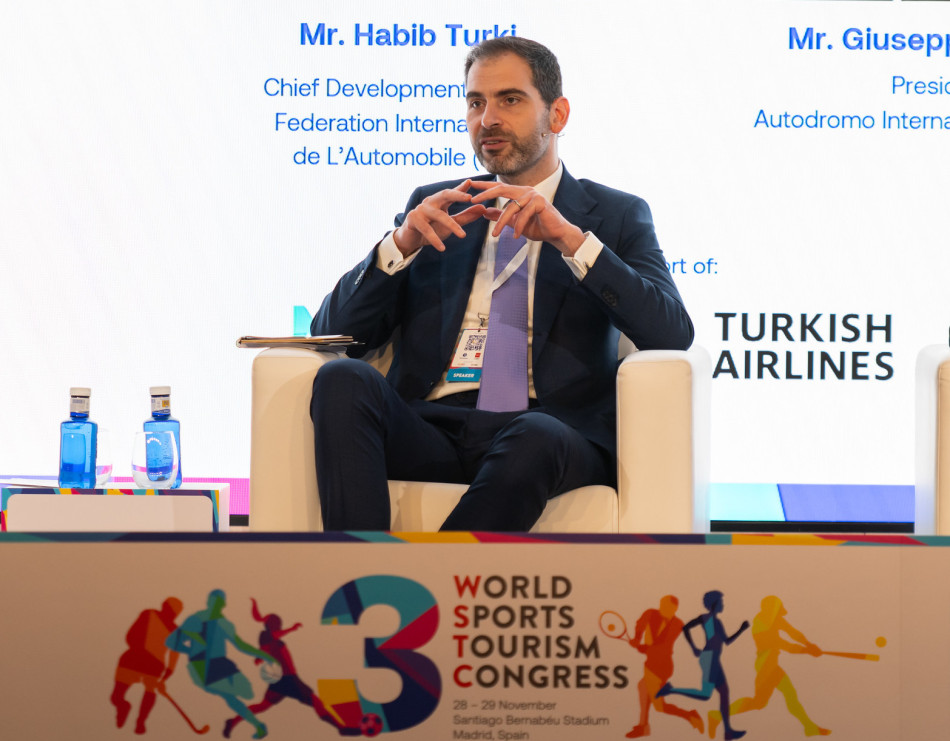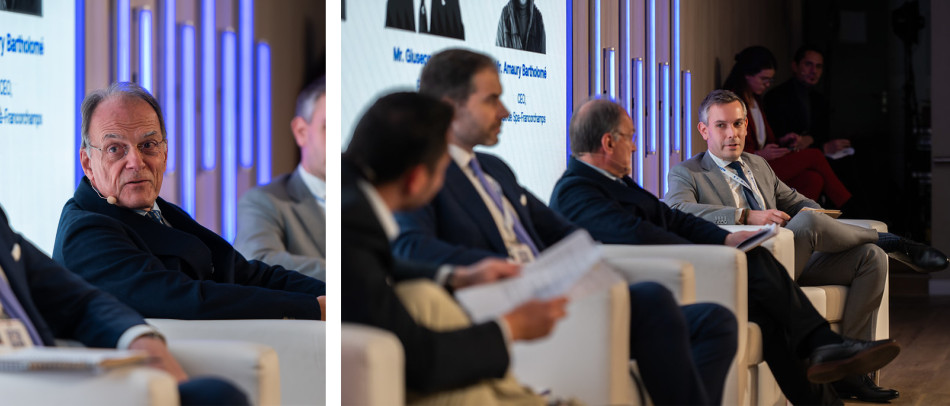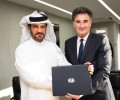Sustainable tourism and economic growth: FIA Highlights motorsport’s potential at 3rd World Sports Tourism Congress
At the 3rd World Sport Tourism Congress organised by UN Tourism (UNWTO) in Madrid, Spain, the FIA and its Member, the Automobile Club d’Italia, underlined the unique ability of motorsport to champion sustainable tourism and economic growth.

FIA Chief Development Officer Habib Turki joined Giuseppe Redaelli, ACI member, President of the FIA International Historical Commission and President of AC Varese and Autodromo Nazionale Monza SIAS SpA, and Amaury Bertholomé, CEO of Spa-Francorchamps Circuit in a panel discussion entitled "Racing to the Top: Formula 1 Driving Tourism Destination Development”.
With 2.7 million motorsport participants, 60,700 events annually, and over 7,200 venues supported by 21,600 local Clubs, motorsport demonstrates the capacity to deliver effective economic and social benefits. Habib explained that motorsport events, and more specifically FIA Formula 1 events, play a key role in the development of the global sport tourism landscape. They deliver substantial benefits to host cities and countries by attracting international visitors who then contribute to local economies by spending of accommodation, food, services and regional attractions. They are also a guarantee for hosts to gain global visibility, positioning themselves as attractive destinations for tourism. "For mayors and investors, hosting an FIA Formula 1 Grand Prix is an opportunity to elevate their city to the world stage. It’s not just about the race — it’s the ripple effect," he said.
These events have opened doors to untapped tourism markets. Habib emphasised, "For emerging markets, they are an entry point to develop tourism infrastructure, attract global media attention, and diversify local economies." He also pointed out that the impact goes beyond Formula 1, as all motorsport races, regardless of scale, have the potential to foster growth. They can also help spotlight new destinations — such as with the FIA World Rally Championship which brings fans to scenic remote locations.
Habib then highlighted the new role of FIA President Mohammed Ben Sulayem as UN Tourism’s Ambassador for Sustainable Tourism and the Federation’s commitment to sustainability and inclusivity. He explained how the FIA is ensuring that all motorsport events also deliver tangible, long-lasting benefits to host cities and regions. "Motorsport is not just an exciting spectacle but also a platform for showcasing the latest advancements in sustainability. Inclusivity is equally important. Motorsport generates opportunities for local businesses, integrates community-driven programmes, and ensures accessibility for all fans. These sustainability and inclusivity efforts enhance your city's reputation, including among investors, and create a compelling narrative for hosting motorsport events," he said.
Joining the discussion, Giuseppe Redaelli shared insights on how to promote sustainable practices from his experience of hosting an FIA Formula 1 Grand Prix at the Autodromo Nazionale di Monza with FIA Member the Automobile Club d’Italia.
He explained how the circuit has implemented a comprehensive mobility plan in partnership with the municipal company Monza Mobilità, which allows about 60,000 fans to use shuttle services to the circuit during race weekends. This initiative is part of a broader commitment to sustainable transportation. "It is now possible to get to the circuit by using public, shared, and environmentally friendly means of transport, such as bike sharing and electric scooters," Giuseppe said.
Monza's commitment to sustainability aligns with the FIA’s broader vision for environmentally responsible motorsport, demonstrating how races can generate significant economic growth while minimising their impact on the environment. The circuit’s sustainable approach received the 3-star recognition of the FIA Environmental Accreditation Programme for two consecutive years. The circuit has been certified according to the ISO 14001 standard since 1998 and continually strives to reduce its carbon footprint. "Our main aim is to educate and raise awareness, not only among motorsport enthusiasts but also among the general public, especially young people, so they can experience their passion sustainably," Giuseppe emphasised.
In addition to being a powerful driver of sustainable tourism and development, the event is also having a significant economic impact on the local and national economies. "The positive effects on the local economy are not limited to the week of the Grand Prix. We see a long-term impact, not only on tourism but also on the engine and mechanics sectors," he noted.
CEO of Spa-Francorchamps Amaury Bertholomé also provided valuable insights into the challenges and opportunities the iconic circuit is facing and the economic impact of the FIA Formula 1 Grand Prix on the region of Wallonia. He also explained how the circuit — which also achieved 3-star recognition as part of the FIA Environmental Accreditation Programme — is implementing successful strategies to modernise and meet sustainability goals while preserving its historic legacy.
The FIA Member Clubs are paramount to the success of global motorsport. They are supported through initiatives such as the FIA President’s Development Fund and given opportunities to grow their awareness and influence in key areas such as sustainability through initiatives like the FIA Environmental Accreditation Programme.


 Facebook
Facebook Twitter
Twitter






